Rising Scholars Receive NAEd/Spencer Fellowships and Awards
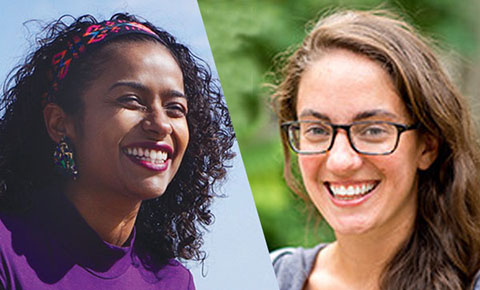
Five early career researchers from the School and Education and Social Policy community were among the winners of the prestigious 2020 National Academy of Education (NAEd)/Spencer Postdoctoral and Dissertation Fellowships Awards.
The 30 NAEd/Spencer Postdoctoral Fellowship recipients – selected from a pool of 229 applicants – include Jen Munson, assistant professor of learning sciences; Daniel Rees Lewis (PhD18), a postdoctoral fellow at Northwestern’s Segal Institute for Design; and alumnus David Weintrop (PhD16), assistant professor at the University of Maryland.
In addition, human development and social policy doctoral candidates Cora Wigger and Julissa Muñiz won NAEd/Spencer Dissertation Fellowships, which provides funding to support finishing dissertations and career development.
The Postdoctoral and Dissertation programs both recognize early career scholars who are already among the best in their field. Their projects address critical issues in the history, theory, or practice of formal or informal education, at national and international levels.
Postdoctoral fellowship winners receive $70,000 to focus on their research and professional development. The 35 NAEd/Spencer Dissertation Fellows — selected from a pool of 429 applicants — will receive $27,500 for up to two years.
Muñiz will use the fellowship to support her work studying learning in carceral settings, specifically in juvenile detention centers.
“For my family, this means I’m one step closer to being a professor,” she wrote on Facebook. “It’s been a long process pero ya mero. Thank you to my family for always being a source of inspiration and support as I pursued my dream. This award is all of ours.”
Learn more about our winners:
Jen Munson, assistant professor of learning sciences in the School of Education and Social Policy.
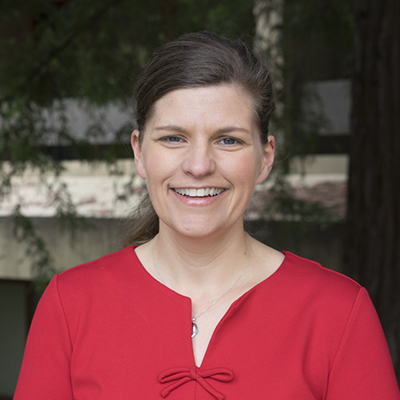 A former elementary and middle school classroom teacher and math coach, Munson looks for ways to support learning by studying the interactions between math teachers, students, and teacher educators. Munson was first recognized as an early career scholar in 2019 when she won an Association of Mathematics Teacher Educators’ STaR (Service, Teaching, and Research) fellowship. She is the author of In the Moment: Conferring in the Elementary Math Classroom, and she coauthored the Mindset Mathematics curriculum series with Stanford Professor Jo Boaler and Cathy Williams, co-founder and executive director of youcubed. The Mindset Mathematics series is used in schools across the country and the world, including Brazil, where it has been translated into Portuguese to be used as part of the national curriculum.
A former elementary and middle school classroom teacher and math coach, Munson looks for ways to support learning by studying the interactions between math teachers, students, and teacher educators. Munson was first recognized as an early career scholar in 2019 when she won an Association of Mathematics Teacher Educators’ STaR (Service, Teaching, and Research) fellowship. She is the author of In the Moment: Conferring in the Elementary Math Classroom, and she coauthored the Mindset Mathematics curriculum series with Stanford Professor Jo Boaler and Cathy Williams, co-founder and executive director of youcubed. The Mindset Mathematics series is used in schools across the country and the world, including Brazil, where it has been translated into Portuguese to be used as part of the national curriculum.
Project: Teacher and Coach, Side by Side: Specifying the Coaching Structures and Moves That Support the Learning of Elementary Mathematics Teachers During Instruction
Coaching is a promising way to support teachers, but Munson cites a lack of research and professional development in this area. Her study explores side-by-side coaching, which lets coaches and teachers discuss teaching during teaching and address problems as they arise in the moment. Her study examines what happens when teachers and coaches work side by side and she’ll use the data to help create an effective model of this relatively new practice to be used in other contexts. “The ways the coach-teacher dyad collaborate to support teacher learning may offer other partners, such as teacher peers or student teacher-mentor teacher pairs, promising new ways to closely study problems of practice when they emerge, during instruction,” she says.'
David Weintrop, learning scientists and assistant professor at the University of Maryland
 Weintrop received his doctorate in learning sciences from SESP, working with Professor Uri Wilensky in the Center for Connected Learning and Computer-Based Modeling. His work, which combines learning sciences, human-computer interaction, and computer science education, emphasizes designing environments and technologies that increase diversity in computing. He has a joint appointment in the Teaching & Learning, Policy & Leadership (TLPL) department in the College of Education and the College of Information Studies.
Weintrop received his doctorate in learning sciences from SESP, working with Professor Uri Wilensky in the Center for Connected Learning and Computer-Based Modeling. His work, which combines learning sciences, human-computer interaction, and computer science education, emphasizes designing environments and technologies that increase diversity in computing. He has a joint appointment in the Teaching & Learning, Policy & Leadership (TLPL) department in the College of Education and the College of Information Studies.
Project: Designing Equitable Computational Thinking Learning Opportunities in Under-Resourced Elementary Mathematics Classrooms
Weintrop is studying how integrating problem-solving methods known as “computational thinking” into elementary school math classes can offer children meaningful and equitable learning opportunities. In addition to gleaning insights into the nature of computational thinking for elementary learners, the project looks at how equitable computational thinking experiences can be designed within the constraints of public classrooms. “The goal is to bring computational thinking to all learners in an effective, equitable, and actionable way,” he said.
Daniel Rees Lewis (PhD18), learning scientist and a postdoctoral fellow in Northwestern’s Segal Design Institute
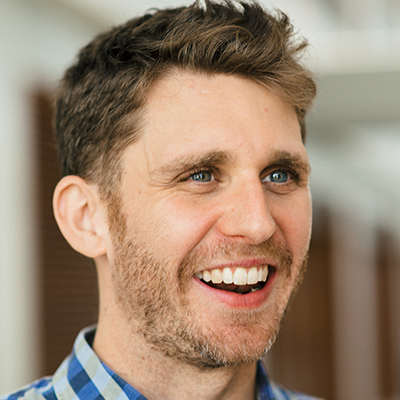 Rees Lewis creates and studies pedagogies, technologies, and organizations to help teachers and designers be more effective. His projects have focused on how to support university students designing for the homeless population, for example, or as in his Spencer project, how online feedback can help teachers can design more effective and equitable curricula. He’s currently helping design teams identify and meet the needs of their clients; creating technology to provide more effective feedback and coaching; and designing research methods to help researchers be more responsive to stakeholder needs.
Rees Lewis creates and studies pedagogies, technologies, and organizations to help teachers and designers be more effective. His projects have focused on how to support university students designing for the homeless population, for example, or as in his Spencer project, how online feedback can help teachers can design more effective and equitable curricula. He’s currently helping design teams identify and meet the needs of their clients; creating technology to provide more effective feedback and coaching; and designing research methods to help researchers be more responsive to stakeholder needs.
Project: Providing High Quality Online Feedback to Support K-12 Teachers Instructional Improvement Through Principled Adaption
Rees Lewis’s study looks at whether using a feedback process called “principled adaption” can help K-12 teachers make their existing curriculum more effective and equitable. Teachers benefit from receiving significant expert feedback in highly resourced face-to-face settings. Rees Lewis is studying how to provide online feedback through professional learning networks—distributed networks for improving teaching, supported by technology. “Providing regular high-quality feedback to teachers as they work to improve their curriculum and practice can help address critical issues of equity and effectiveness in education,” he says.
Julissa Muñiz, doctoral candidate in human development and social policy at SESP
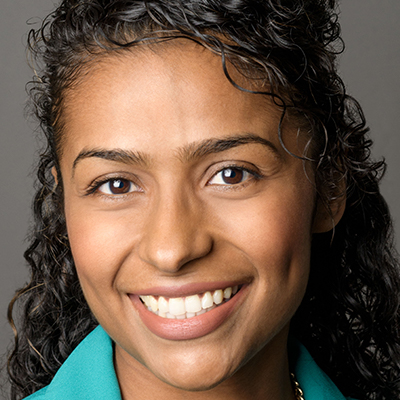 Muñiz draws on her experiences as a tutor, GED instructor, writing workshop facilitator, art instructor, facility monitor, and most recently as a college instructor in prisons and juvenile facilities. It was her students and inside co-teacher at San Quentin State Prison who first encouraged her to study learning and education in the juvenile context. As a doctoral student, Muñiz founded Northwestern’s first Latinx-centered graduate student organization, Comunidad Latinx, and served as the organization’s president for two years. In 2018, she received the Paul and Daisy Soros Fellowship for New Americans, a fellowship for immigrants and their children.
Muñiz draws on her experiences as a tutor, GED instructor, writing workshop facilitator, art instructor, facility monitor, and most recently as a college instructor in prisons and juvenile facilities. It was her students and inside co-teacher at San Quentin State Prison who first encouraged her to study learning and education in the juvenile context. As a doctoral student, Muñiz founded Northwestern’s first Latinx-centered graduate student organization, Comunidad Latinx, and served as the organization’s president for two years. In 2018, she received the Paul and Daisy Soros Fellowship for New Americans, a fellowship for immigrants and their children.
“I think when children are incarcerated, it is a failure of our mental health services, our education systems and our child protective services,” she said in SESP Magazine. “But, if we are going to have juveniles in prison, I want to know how can we better support these children? How can we provide healing and love, and how we can show kids they are more than this status?”
“I Don’t Think No Kid Should Be Here:” A Critical Ethnography on Learning in the Carceral Context
Muñiz’s dissertation looks at a juvenile detention center in the Midwest as a place of learning. She is particularly interested in how the adults in the carceral setting – the administrators, teachers, security staff, and community members – view and organize education under confinement. By studying education in the liminal space between schools and prisons and the experiences of those caught in both worlds, she hopes to help researchers, educators, policymakers better understand what it means to learn and go to school while incarcerated as a young person and how these experiences impact their educational trajectories. “Otherwise, our conceptualization and approach to the school prison nexus will remain incomplete, further harming countless youth and communities over time,” she says.
Cora Wigger, doctoral candidate in human development and social policy at SESP
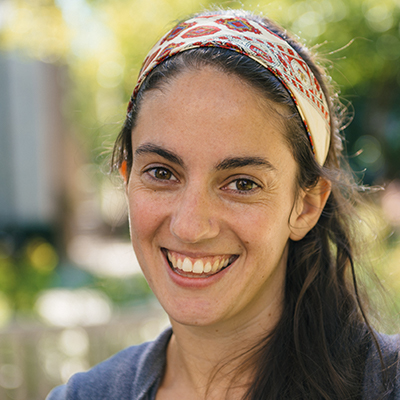 Wigger studies the connections between education and housing, including school finance and student assignment/school choice issues. She primarily looks at how policy and economic shifts affect individuals, groups and markets. Her work has been supported by Northwestern University’s Multidisciplinary Program in Education Sciences (funded by the Institute for Education Sciences) and Institute for Policy Research. Prior to beginning a PhD, Wigger worked in a variety of non-profit and government settings, including a domestic violence service agency in Louisville, Kentucky and the Tennessee Department of Education. She has previously worked on research projects in conjunction with public school districts in Evanston, Louisville, and Nashville.
Wigger studies the connections between education and housing, including school finance and student assignment/school choice issues. She primarily looks at how policy and economic shifts affect individuals, groups and markets. Her work has been supported by Northwestern University’s Multidisciplinary Program in Education Sciences (funded by the Institute for Education Sciences) and Institute for Policy Research. Prior to beginning a PhD, Wigger worked in a variety of non-profit and government settings, including a domestic violence service agency in Louisville, Kentucky and the Tennessee Department of Education. She has previously worked on research projects in conjunction with public school districts in Evanston, Louisville, and Nashville.
Project: Full Circle: Assessing the Changing Link Between Education and Housing
Wigger is studying how policies change the persistent relationship between education and housing. Focusing on the popular and ever-changing topic of school choice, she looks at how replacing neighborhood schools with a system of school choice changes the demographics and housing costs of neighborhoods. Previous work in this area has looked at policies that offer school choice as a way for families to opt out of their residentially assigned school. Her study uniquely examines the effects of school choice on its own, absent a default neighborhood school. Her results will help educational researchers and policymakers understand similar school choice policies and better understand how school choice operates in all contexts.